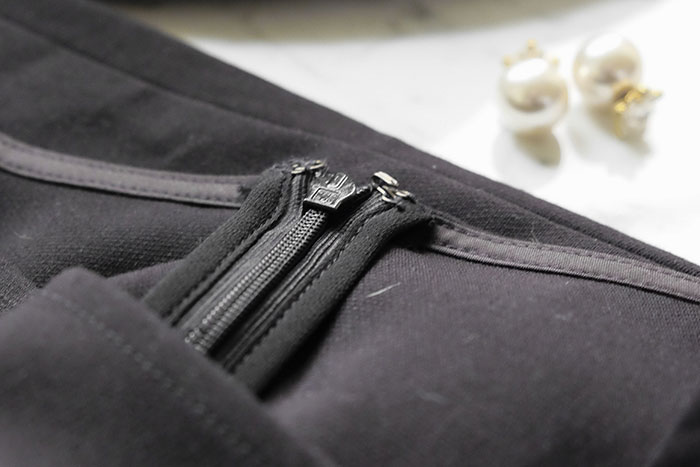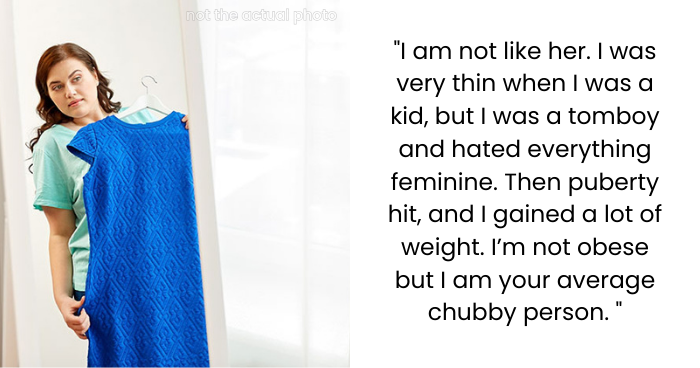Daughter Reaches Breaking Point After Mom’s ‘Tough Love’ Harms Her Self-Esteem
A 19-year-old asked her mother for assistance choosing a dress for an upcoming wedding. Her mother, a former model who has previously made snide comments about her daughter’s looks, lent some of her own dresses to try. But when one dress didn’t fit and the zipper split, her mum shouted, ‘Goodness me, you actually are fat’ provoked laughter from an aunt who was there.
Having to listen to yet more unsolicited advice on keeping her stomach in check for the nuptials, the daughter had finally had enough and informed her mother that she would purchase her own dress instead. Her mom and brothers muted her video, which they characterized as a “tantrum.” None of her videos said her mom had ever biased between her and her brothers, but then again, her mom has the luxury of being in a position to do the same, but her friends and bf backed her 100%.
Now she is wondering whether she was overly sensitive or was justified in her reaction.
It can be incredibly hurtful to realize that the people close to you can’t stop ignoring your boundaries

A young woman opened up about how her mom keeps making fun of her appearance and weight. She finally had enough













Balancing Boundaries, Family Dynamics, and Self-Esteem
1. The Impact of Family Criticism on Self-Esteem
Family dynamics [The roots] — Family dynamics — especially during formative years — deeply influence body image and self-esteem. The Journal of Youth and Adolescence illustrates how damaging critical comments about weight from the parent can cause issues of self-worth for many years. The mother’s beauty criticism is likely coming from somewhere else, but it clearly took an emotional toll over time.
While her daughter has indicated multiple times that these comments are hurtful, it appears her mom is unaffected by her daughter’s feelings—and continues to comment on her perceived imperfections, be it pimples, hair, or weight.
2. Humor or Harm? The Fine Line in Family Teasing
The laugh from the aunt; the relaxed nature of the mom’s comment — perhaps to them these are benign jokes, a way to poke fun at what we’ve all known for some time now? But this constant joking has become damaging. When weight is already a sore point, family “jokes” can come across more as taunts than banter.
In ignoring her daughter’s emotions and downplaying the incident by calling it a “tantrum,” the mom undermines the real emotional effect of her words.
3. Setting Healthy Boundaries

Buying her own drees is a great boundary line. It is not a denial of her mom’s help but reclamation of a situation that has, time and again, found her in a space of discomfort and degradation. She’s also showing that the monetary saving or life as always (the status quo) type of life is nowhere near as worth as her emotional health.
4. Addressing the Root Issue

It’s about more than just a dress: years of sniping and jibes and a daughter trying to take back something that has been stripped of her. Later, a frank discussion—possibly with a neutral third-party—might let the mom see how her words affect her daughter, and how such remarks may damage future interactions.
Many internet users rushed to give the author some advice on what to do next






NO – The daughter isn’t the asshole for choosing to purchase her own dress. The nasty effect of this, even if her mom didn’t mean to be malicious, comments over and over again about how she didn’t think her daughter cared enough, belittling her sadness, and ahead the loneliness have monstered her daughter through emotional trauma. Instead of accepting that disrespect, she decided she would buy her dress, and that is a step toward self-respect and mental protection.
Things begin with the mom respecting the daughter in terms of her feelings and the way her words impact.

